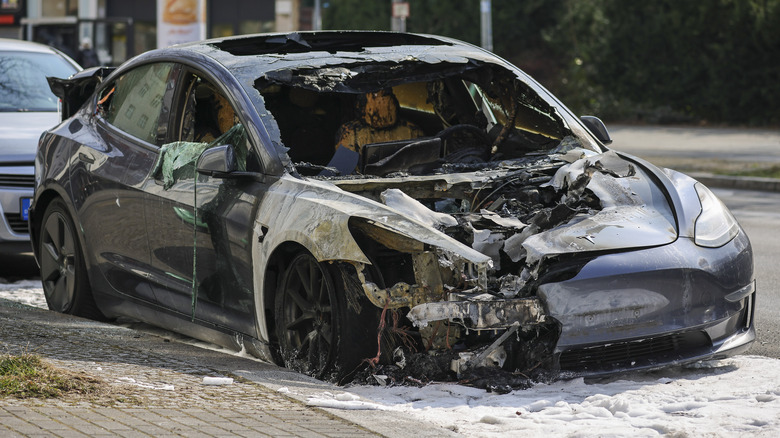
According to the California New Car Dealers Association, the state's seen some pretty impressive new electric vehicle sales growth by model lately. Non-Tesla EV sales rose an impressive 35% in the first quarter of 2025 compared to the prior year. While the state's best-selling electric cars are still built by Tesla, Bloomberg reports new Tesla registrations dropped by double-digits. The pioneering formerly-California-based EV-only automaker saw its new-car registrations drop in California by 15% year-over-year.
The company's share of the California market similarly fell to 43.9%, from 55.5% last year. For the first time since Tesla became a player in the EV space, it hasn't sold a majority of the electric cars in the Golden State. That doesn't bode well for Tesla, as California accounts for nearly a third of U.S. EV sales.
"An aging product lineup and backlash against Elon Musk's political initiatives are likely key factors for the decline in Tesla BEV market share," the dealers' association noted in its quarterly report. If I were a betting man, I'd say many Californians would be willing to overlook the recently refreshed past-sell-by-date Model 3 and Model Y if it weren't for the company's CEO and his involvement in dismantling large portions of the U.S. government from the inside.
 Omer Messinger/Getty Images
Omer Messinger/Getty Images
As recently as 2022, Tesla was the monolith of EV sales in California, accounting for over 70% of the state's new electric vehicle registrations. With increased competition from more mainstream automobile manufacturers with familiar distribution channels and more consistent, less expensive parts and service, Tesla's market share has slumped worldwide. Californians have increasingly gravitated toward name brands they're already familiar with, as the GM-built Honda Prologue tops non-Tesla sales, followed closely by the anachronistically shaped Hyundai Ioniq 5.
Despite the downturn in Tesla's fortunes, California managed to dramatically increase its EV and hybrid buying in the first quarter of 2025 compared to 2024. Battery-electric vehicle registrations rose from 89,821 to 96,416 while hybrids shot from 56,030 to 82,833, and plug-in hybrids went from 15,682 to 17,046 units moved.
All told, HEVs, PHEVs, and BEVs combined for a whopping 42.4% of the California market. Among cars with some form of electric motor propulsion, Tesla accounted for just 21.5% of new registrations in Q1 this year. If EV-hungry Californians aren't even buying these cars, who will?














